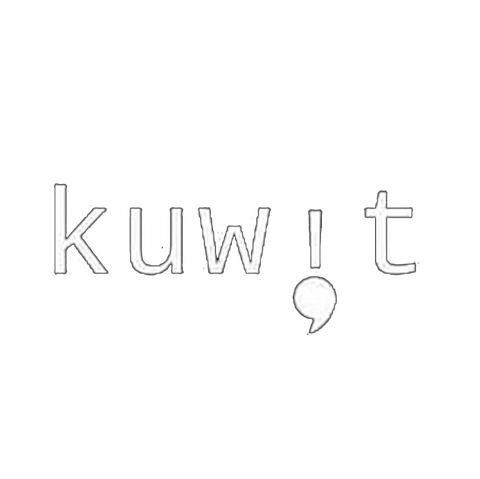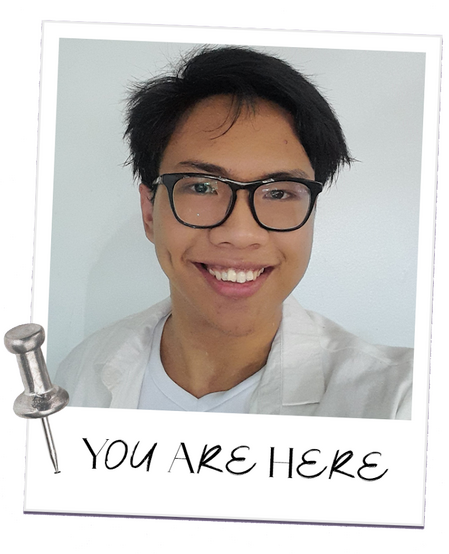


An astronaut lost in time. A brother abandoning a brother as he prepares to leave for another planet. A girl leaving behind all civilization for a mission on the outskirts of the galaxy. These are stories that renowned-author Samantha holds dear to her heart, remnants of the bedtime stories that her father used to tell her before he disappeared. It’s high time that she sits down and actually writes them.
Orphans is a novel about growing up and leaving behind your home, two things I had experienced first-hand after entering PHSA. From the mountains of Makiling to the event horizon of a black hole; from the wise advice of my parents to the musings of fictional scientists smarter than I’ll ever be—I hope this story from outer space can remind you of home.The chosen genre of my final project is science fiction, sci-fi for short.So what is Sci-Fi?According to Encyclopaedia Britannica, the definition of science fiction is: “that it is a form of fiction that deals principally with the impact of actual or imagined science upon society or individuals.”By the very nature of the genre, it asks questions about our world, about technology, and seeks to understand how it affects one another. I think I enjoy science fiction because I’ve always been a curious kid. Daydreams are playgrounds to test imaginary what-ifs, and science fiction is my way of realizing those daydreams.“I do want there to be a depth of human feeling in my work, but that’s not my primary goal as a writer. My primary goal has to do with engaging in philosophical questions and thought experiments, trying to work out the consequences of certain ideas.”Ted Chiang, an award-winning Sci-Fi author, said this in in an interview once, when asked about how he wrote his science fiction.In a sense, unlike drama or romance, which aims to explore more about identity or relationships, or action, adventure, or comedy, which often is more interested in entertaining, sci-fi has the ability to expose how our society functions.In science fiction of old, think 1984, Fahrenheit 451, or Brave New World. Their authors were thinking about our systems of governance and the detriments of authoritarianism. To the present, with stories like Wall-E, the highest grossing film of all-time Avatar, the recent Don’t Look Up, or the apocalypse fiction so famous today in YA, where human hubris destroys the environment or the world that we live in.While fiction gives us the ability to understand, sci-fi, more than any other genre, has the ability to predict. It deals with hopes, dreams, and speculation, in the sense that through these thought experiments, we are allowed to anticipate certain realities in the future.That said, in my six years in Makiling, this project is my first work in the sci-fi genre.Sci-fi is a genre, meaning, before having the chance to use it in my works, I needed to study the basic elements of writing first. For example, in prose, you have character, setting, plot, things to keep in mind like, grammar, how to revise, lyricality in your sentences.I haven’t written sci-fi in my time in Makiling because I didn’t even realize that I could. Genre fiction has a connotation of being less than “the classics” or non-fiction, which are known as the more “productive” texts.Our creative writing teachers, exposing to children’s stories, children’s poems, and other experimental media, tried to teach us that there is validity and legitimacy to these more free, more imaginative, works in these genres typically regarded as only being for entertainment and fun.Taking my writing a little bit too seriously, it just took me a while to realize that.John Scalzi, another sci-fi author, said this: “It basically boils down to ‘don't be boring.’ As a reader I have a very short attention span and a low tolerance for boredom, and I find that comes in handy with my writing. If I get bored writing something, I pity the people who will then try to read it.”Only in my last few years did I realize that I should write more for myself, and that being playful isn’t necessarily detrimental to the quality of my writing.However, in preparing for writing a science fiction novel, I learned that there was more to it than just having fun and typing out your imagination. I was still bound by the basics that were taught to us previously. Rule-breaking is only encouraged when you know the rules in the first place and why you need to break it in the first place.Rules are there in the first place because they are proven to work, so a blend of rules and wild fun is needed, in my opinionAn example of this is the rule of research and verisimilitude.A quick explanation of what verisimilitude is, is that it is the creation of a realistic, authentic, and life-like portrayal of a situation, character, or place. In other words, to create a world where things make sense, where logic and reason can be applied upon it and derive thoughts about what could happen.In other words, the appearance of being real and believable.Verisimilitude is as important in fiction as it is in the social sciences and non-fiction, because of the fact that if you want audiences to care about what’s happening in the story, it needs believability, and that’s found through extensive research and establishment of this verisimilitude.This is why the advice “write what you know” is often given to beginner writers. For the readers to be able to relate to the work, it needs to make sense—believable in the sense that a reader may be able to suspend their disbelief and be immersed in a story that isn’t riddled with inconsistencies.Patricia Leavy said in her book, Fiction as Research Practice: “Fiction can draw us in, giving us access to new yet familiar worlds in which we might meet strangers or through which we might reflect on our own lives.”Meaning, fiction has this ability to talk about topics and themes with a certain distance to reality, that allow topics and themes to be easily digested.Without the entertaining romance of Spice and Wolf, I wouldn’t care much for the economic concepts that were important in the story. In Percy Jackson, I learned how certain histories out of our hands can dictate the paths available to new generations, something I wouldn’t care about otherwise without it being under the guise of fiction.Again, from Patricia Leavy: “Fiction grants us an imaginary entry into what is otherwise inaccessible. The practice of writing and reading fiction allows us to access imaginary or possible worlds, to re-examine the worlds we live in, and to enter into the psychological processes that motivate people and the social worlds that shape them.”Fiction has a way of making the uninterested, interested. Tapping upon, or even baiting, certain interests and using that as a way to transition into learning about something more.Stories are one of the things that make my life interesting, may that be through watching films or reading books or writing. Stories how to just sit down and imagine, to crave an understanding of how the world works. I’m only seeking to mirror what these stories has done for me, so I decided to write a story of my own for my final project.Writing what I know, the theme of departure from home was something that I experienced first-hand when I decided to study in PHSA. I was miserable at first—all the schoolwork, being somewhere unfamiliar, missing my friends and family.It took me a while to learn that taking things slowly will allow me to appreciate the moment more. Getting caught up in past regrets will make it difficult moving forward, so appreciate the small things.A stroll to the school area surrounded by nature, hanging out with friends, laughing about things that are only funny to our small group of people. A hug. A good book. A compliment on your work from a teacher. The fidget spinner that your roommate brought.I don’t know if I’m good enough of a writer to guarantee that what I want to convey will reach those who read my novel.
But I’ll try, at the very least.
References:- Rothman, Joshua, and Anthony Lane. “Ted Chiang's Soulful Science Fiction.” The New Yorker, 5 Jan. 2017,- Klems, Brian A. “Science-Fiction Author John Scalzi Explains How Not to Be Boring.” Writer's Digest, 20 July 2011,- Leavy, P. Method Meets Art, Second Edition: Arts-Based Research Practice. The Guilford Press, 2015. Print.





